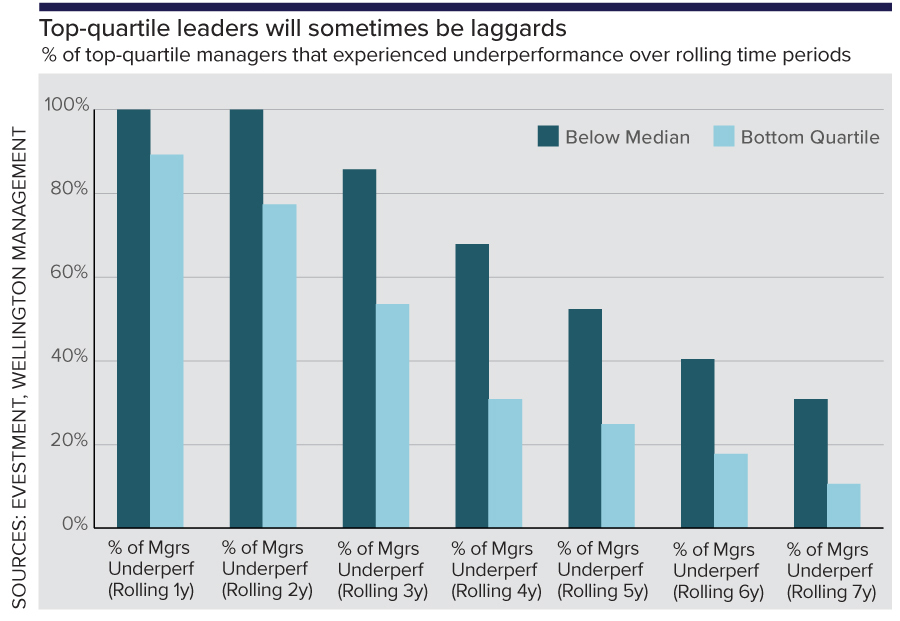The events of 2023 have certainly supported this argument. In the first half of the year, we saw markets swing between expectations of a recession and a Goldilocks scenario, with different regions battling different problems.
Appetite for bonds not abating in face of 'exaggerated' 5% Treasury yields
The UK and Europe have seen persistent inflation and little growth, while other economies, such as the US, have been able to bring inflation down more quickly while continuing to grow.
The central question for many investors may be how to ensure their portfolios are equipped for the challenge of the new regime, as well as prepared to take advantage of opportunities such an environment may create.
Research conducted by iStrat, the investment strategy and solutions group here at Wellington, sets out some important portfolio implications for this environment.
Create portfolio balance and resilience
Portfolios will be tested on their ability to weather market cycles. So how can investors ensure they are well positioned to stand up to these cycles?
Being too defensive may be detrimental
Amid heightened volatility, it might be tempting to only invest in very defensive assets, especially with current elevated cash yields.
But our analysis suggests that holding cash at this point in the cycle has, in the past, led to a significant return drag relative to fixed income.
Higher for longer: Private markets may be due a reckoning after a decade of stellar growth
Historically, when the Bank of England has finished hiking interest rates (when cash yields are at their peak), investors have fared better over the next one to three years by moving out of cash into fixed income, and particularly high-quality corporate credit rather than government bonds over the longer term.
Diversifying across market regimes
When building portfolios, investors are generally familiar with the need to diversify across geographies, asset classes and fund managers.
But investors are generally not diversified across regimes, with portfolios often biased to investment conditions of the recent past. Looking historically, our research has shown market regimes falling into four buckets: Risk-on, Nervous, Panic and Uncertain.
It is therefore important to include asset classes and thematic allocations that will allow portfolios to achieve their outcomes across each regime, especially in a world where we are likely to move frequently between cycles and regimes.
Spend the fee budget in the best areas for active
The new era of increasingly divergent and fast-moving cycles will be good for more dynamic portfolios. But deciding where to use active management is key.
Allocators could benefit from spending the portfolio's fee budget in markets that are most inefficient and most likely to generate active returns.
Bond sell-off fails to stifle fixed income flows while equities shed £1.6bn
Our research suggests that certain equity markets, including emerging markets and Japan, are particularly inefficient and therefore more fertile grounds for alpha generation.
For core allocations in some of the more efficient markets, "extended" equity strategies may be a good way to generate strong active returns even when markets are narrow, as they are today.
Incorporate climate change into asset allocation
Climate change will impact investment outcomes, and therefore its incorporation is critical to building resilient portfolios.
Climate change impacts macro-level variables, such as growth and inflation; company-level dynamics, such as costs and future corporate activity; and decisions about regulation and fiscal policy.
These, in turn, will impact asset prices and asset allocation. What is more, we think climate investment themes meaningfully expand the opportunity set for multi-asset portfolios and may create the opportunity for outperformance in certain areas of the market.
Focus on the long-term opportunities
It can be challenging to resist short-term instincts in volatile environments, but it is important to stay focused on the long term and ensure portfolios can exploit structural opportunities in markets.
Patience in managers can pay off
Our research shows the potentially detrimental impact on performance of focusing on short-term manager returns.
In short, even the best active managers can suffer extended periods of underperformance, so investors may want to think twice before abandoning a thoughtfully selected allocation just because a manager has had a bad run.

Consider thematic investments to reduce cycle exposure
Investors can keep portfolios focused on the long term by tapping into structural change driving markets.
Thematic investments are inherently long-term and forward-looking, and therefore may help reduce the impact of the shorter-term economic cycle on returns.
Think carefully about regional balance
Investors should consider emerging markets (EM) despite recent challenges.
Many portfolios have reduced exposure to EM, but as global economic conditions evolve, the coming decade could be better for EM equities.
Bottom line
Wealth managers, advisers and allocators are increasingly working with a complex and evolving investment landscape.
Investors should prepare for short-term volatility and faster market cycles, without being blindsided by that same volatility.
Natasha Brook-Walters, Co-Head of Investment Strategy at Wellington Management


